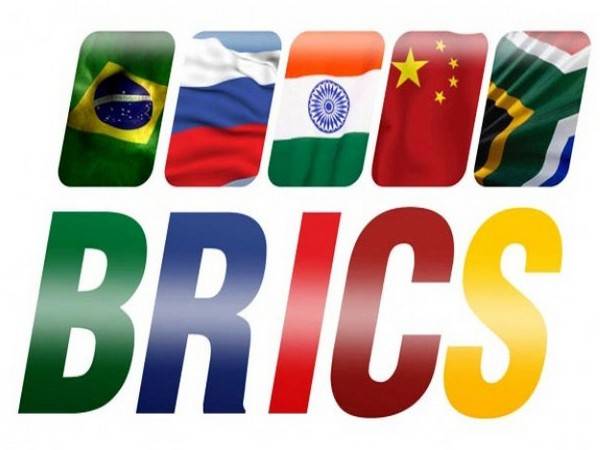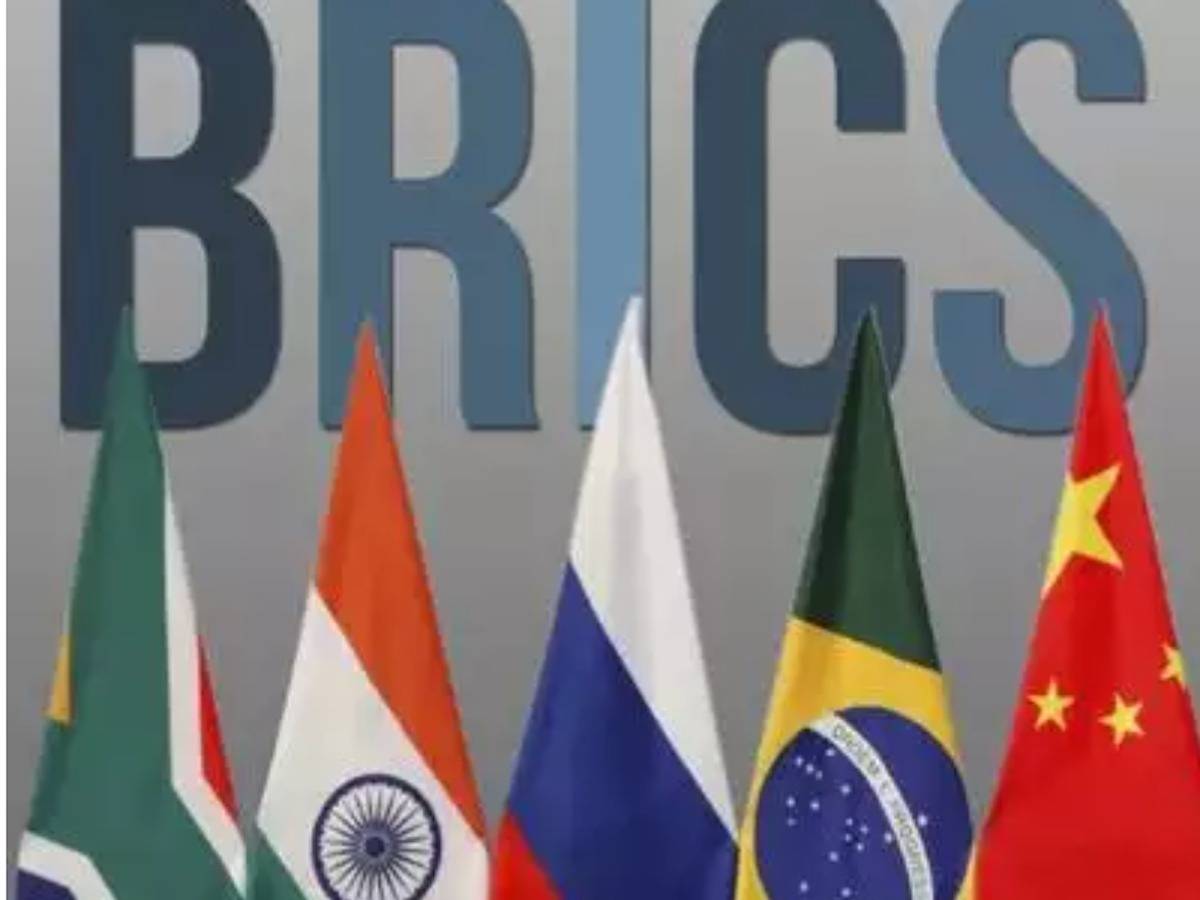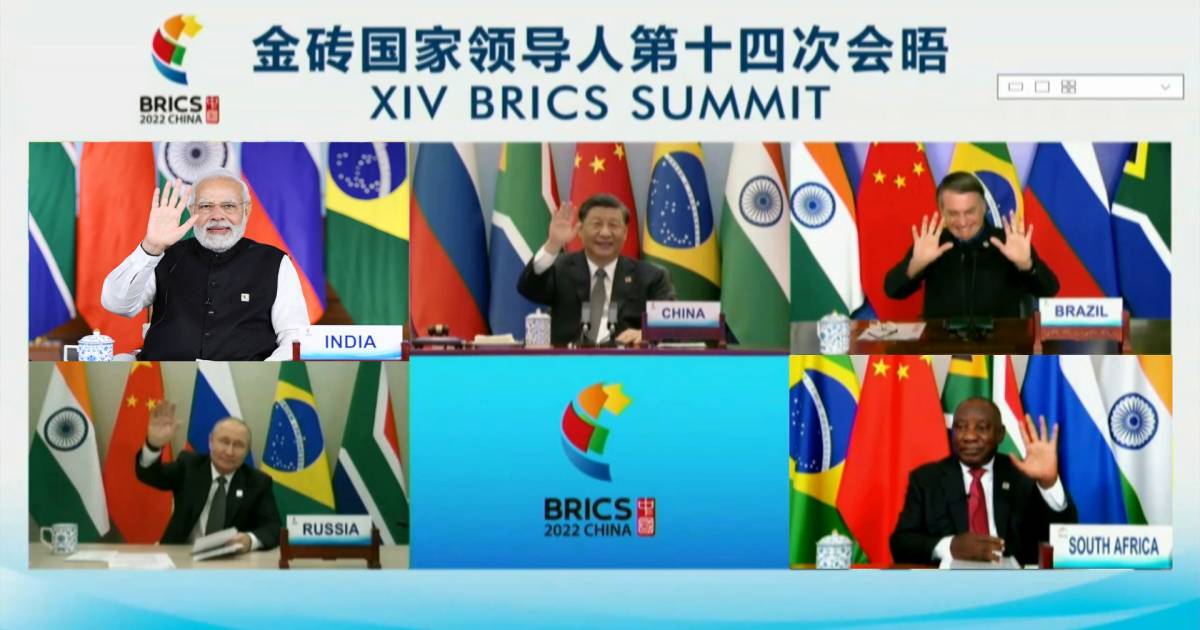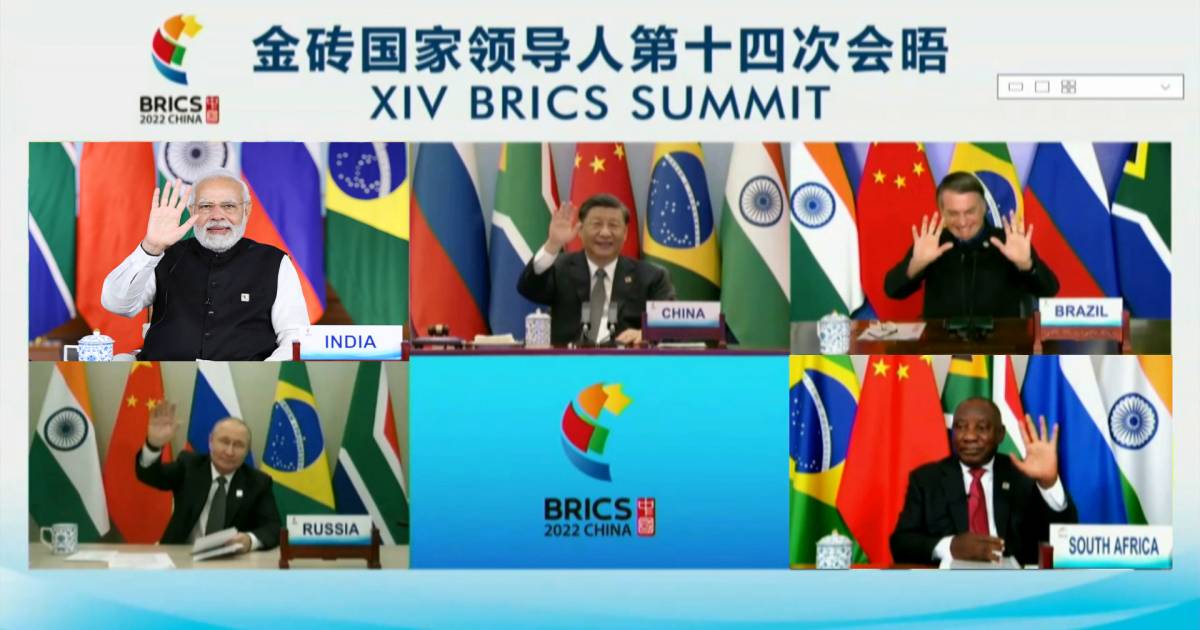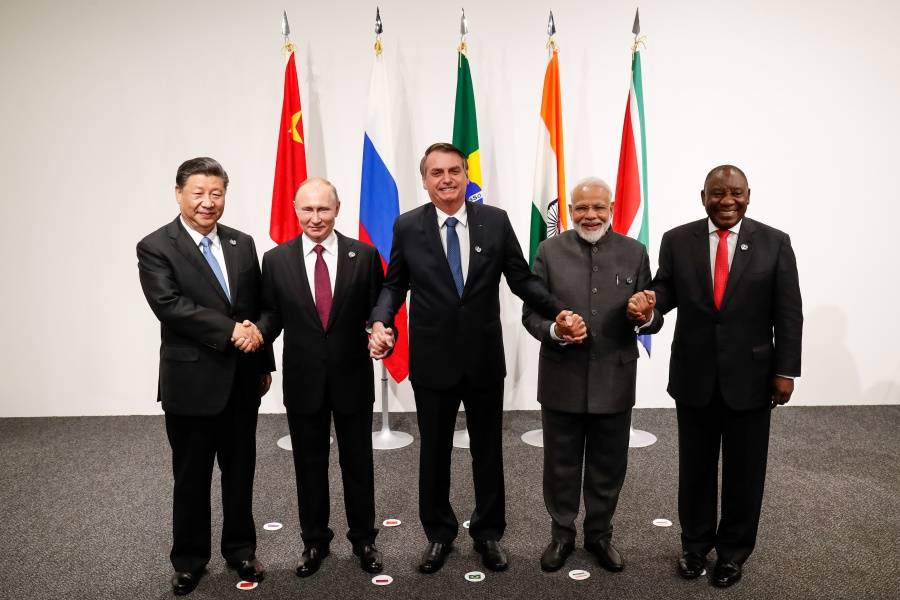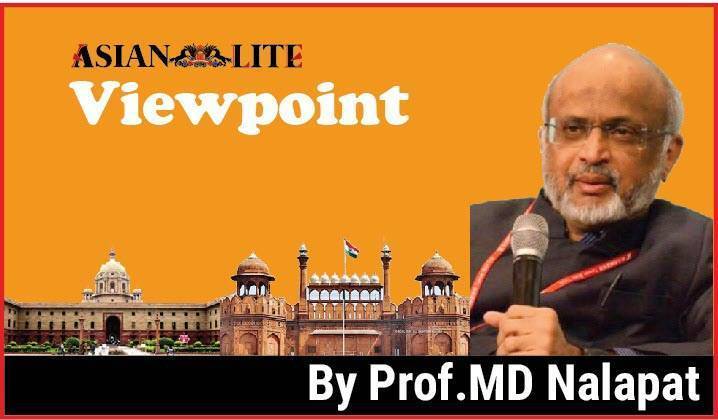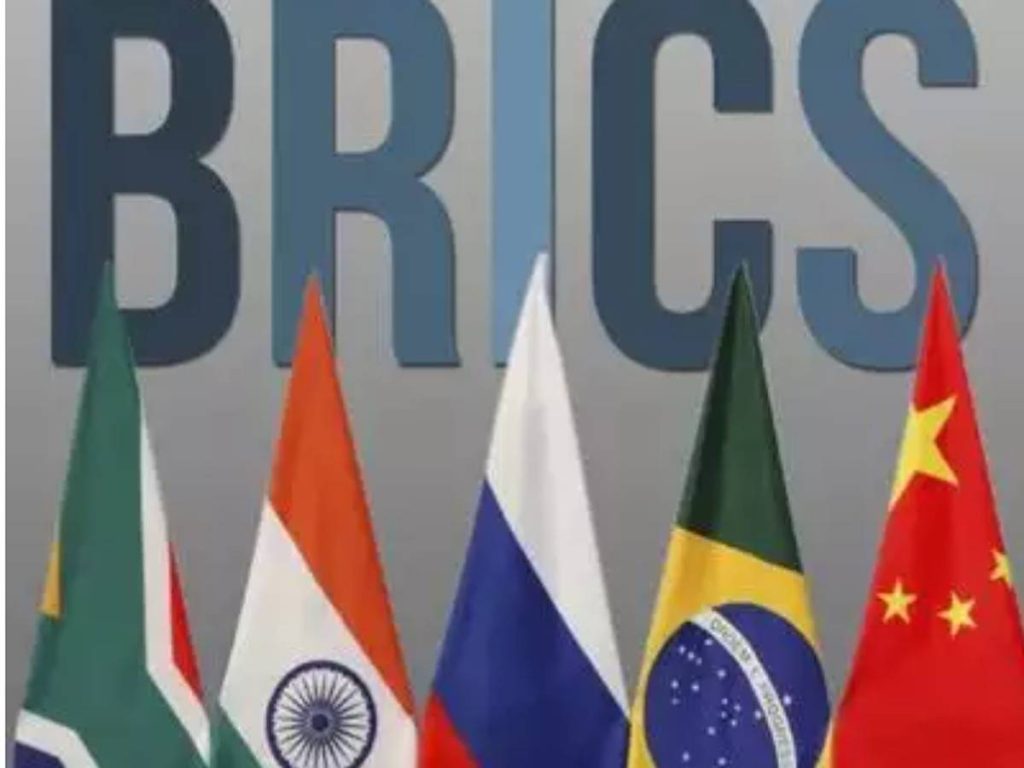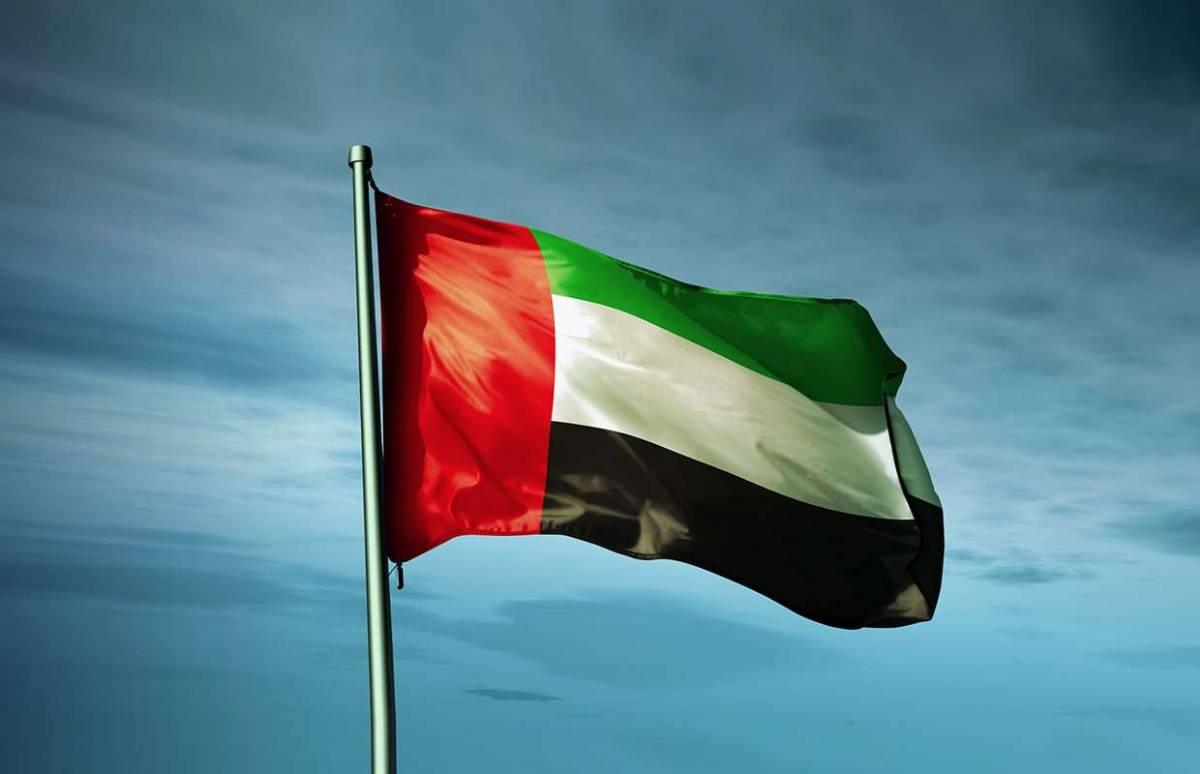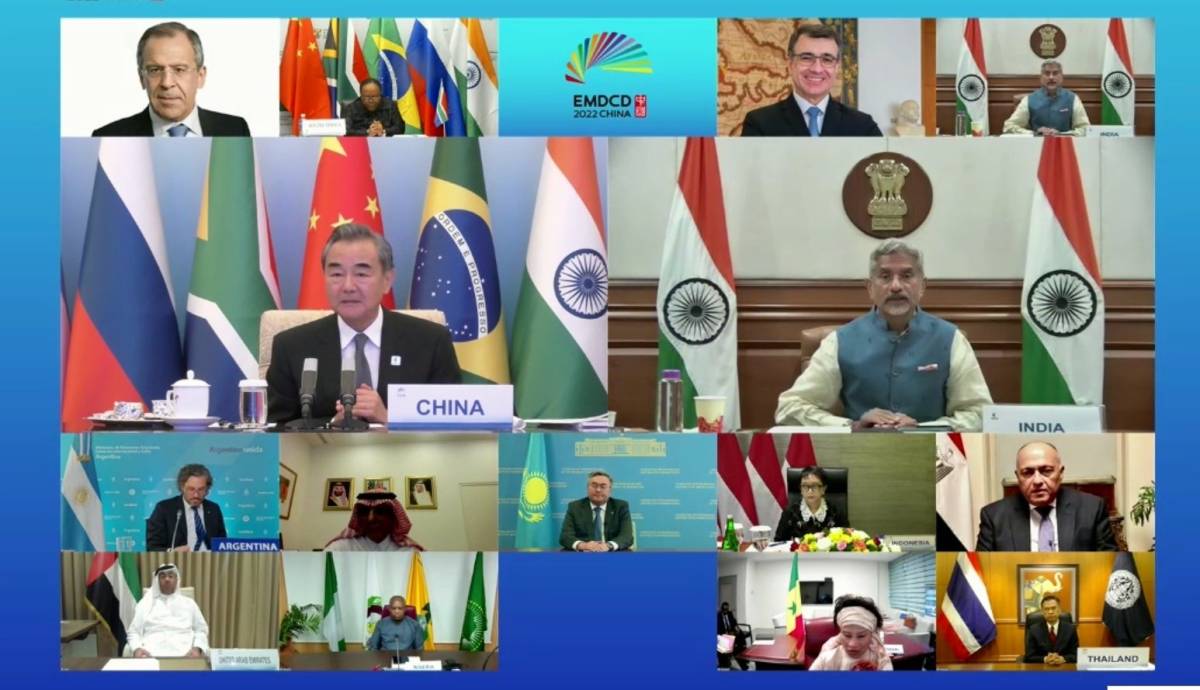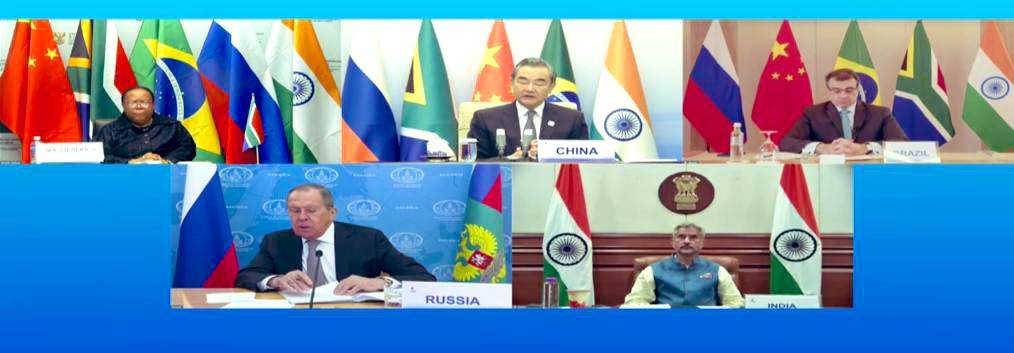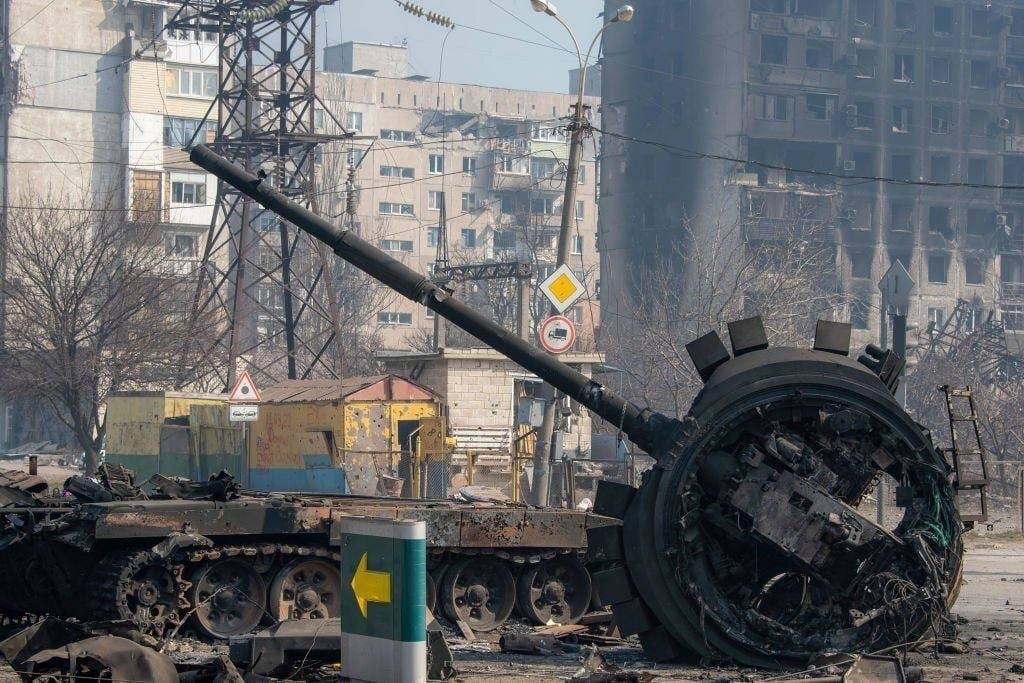In his opening statement at the 14th BRICS summit, Indian PM also said that though the pandemic is not as severe as it was, its adverse impact on the economy is continuing…reports Asian Lite News
The BRICS (Brazil-Russia-India-China-South Africa) block has taken a similar approach to the governance of the global economy and the mutual cooperation among the member countries has helped in useful contribution to the post-Covid economic recovery, Prime Minister Narendra Modi said on Thursday.
“Regarding the governance of the global economy, we BRICS member countries have a very similar approach. And so our mutual cooperation can make a useful contribution in the global post-COVID recovery,” Prime Minister Narendra Modi said at BRICS summit,” Modi said in the presence of Chinese President Xi Jinping and Russian President Vladimir Putin. Brazilian President Jair Messias Bolsonaro and South African President Cyril Ramaphosa were also present at the virtual summit.
Modi, in his opening statement at the 14th BRICS summit, also said that though the Covid 19 pandemic is not as severe as it was, its adverse impact on the economy is continuing.
The Prime Minister also said that the contours of the BRICS framework were further strengthened.
The people to people contact have also improved among the BRICS members, he said, noting that the International Yoga Day was observed in all the BRICS countries.
“There are multiple areas wherein through cooperation between BRICS nations, the citizens have benefitted,” he said.
Earlier, addressing the regular press conference, Wang Wenbin, Chinese Foreign Ministry Spokesperson said that BRICS is an important platform for cooperation among emerging markets and developing countries and that BRICS countries have become engines driving world economic recovery and growth.
BRICS members seek to benefit from global dislocations caused by war
Amid the geopolitical shift especially after the US thrashed sanctions against Russia after its invasion into Ukraine, the BRICS forum, which until now has not made any significant mark on the global map, could gain fresh momentum as the members seek greater economic integration in the post Covid phase.
Beijing based state owned news organisation Global Times said that with the conflict in Ukraine as a backdrop along the uncertain economic situation at an international level, mounting inflation in Western countries, and rising global prices of basic commodities that threaten the development of various emerging countries, “the voice of the BRICS as a mechanism for cooperation is more important than ever.”
Issues related to setting up an alternative international payment mechanism to SWIFT and a new global reserve currency have been discussed at the summit, according to reports.
Prime Minister Narendra Modi, speaking at the BRICS Business Forum said that the emerging economies would be the engine of global growth and the BRICS forum was set up to drive this. “Today as the world focuses on post Covid recovery, the role and contribution of the BRICS countries will be crucial,” he said. BRICS nations, home to 42 per cent of the global population, account for 25.7 per cent of world GDP.
Wang Wenbin, Chinese Foreign Ministry Spokesperson at the regular press briefing said that fostering high-quality BRICS partnership is particularly important for advancing global development in the new era.
“BRICS countries will continue to deepen cooperation in economic integration, do their utmost to reduce the impact of poverty and food and energy crisis on people’s livelihood, and promote sustainable and inclusive development,” he said.
Russia is already looking to aggressively integrate its trade and economy with the other members of this block. Russian President Vladimir Putin virtually addressing the BRICS Business Forum – his first international appearance on an international forum since his country’s invasion into Ukraine, said that on Wednesday that despite the ‘politically motivated sanctions,” thrashed against his country, its total trade with Brazil, India, China and South Africa rose 38 per cent in the first three months of the year to $45 billion.
“Russian oil supplies to China and India are growing noticeably,” Putin added.
He also said that Moscow and New Delhi are already in talks for the launch of Indian retail store chains in Russia.
“Contacts between Russian business circles and the business community of the BRICS countries are being activated. For example, negotiations are underway to open Indian retail chain stores in Russia, to increase the share of Chinese cars, equipment and machinery in our market. Russia’s presence in [BRICS] countries is also expanding,” Putin said.
Notably, the BRICS nations have more or less taken the same stand on Russia even as the US increased pressure to condemn Moscow.
Many analysts have attempted to downplay the importance of the BRICS forum.
BBC in a report said that unlike the in-person QUAD summit that was held in Tokyo last month, the BRICS meet is a virtual one.
“The last two were held during the Covid pandemic, but it’s not clear why the leaders chose to skip face-to-face meetings this year,” the report said. “It’s in stark contrast to the Quad – which groups India with Australia, Japan and the US – whose leaders met in person in Japan last month amid the global media glare,” it added.
Aravind Yelery, senior research fellow at the Peking University and visiting faculty at Fudan University in Shanghai said that China is “extremely keen to see BRICS’ success.”
“Now with the rapid geopolitical shifts which have impacted the global supply chain, China feels the need to strike a chord with India,” Yelery said.
ALSO READ-Dubai’s rebound tourism welcomes 6.17 mn intl. visitors from Jan-May 2022
